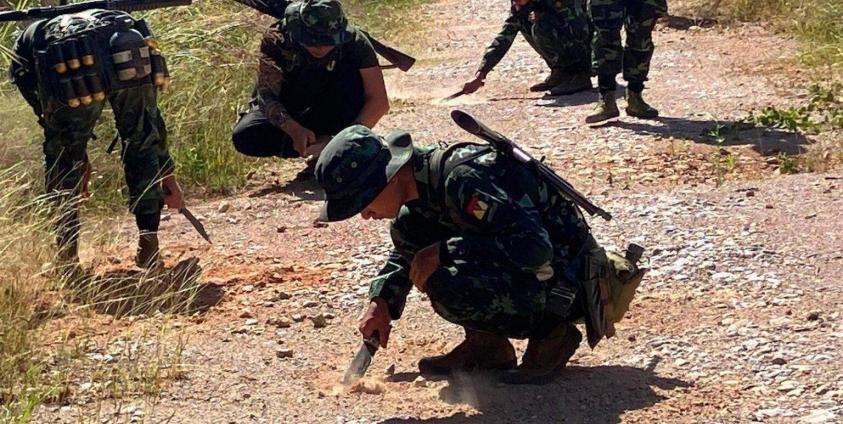U Banyar, Secretary No. 2 of the Karenni State Interim Executive Council (IEC), underscored ongoing deficiencies in landmine risk education programmes, amidst the continuing conflict in Karenni (Kayah) State.
“When we looked into how most landmine accidents occurred, we noticed they often happened because people underestimated the danger. Many were harmed because they did not see mines that are hard to spot, or went into restricted areas. That's why we need to improve our education programmes. It will not be a quick fix; it will take long-term efforts. What we are doing now is not enough. We need stronger education initiatives”, he said.
Landmines continue to pose a threat in villages and townships where Junta troops were deployed during clashes in Karenni State. When locals return home before thorough demining processes are completed, casualties often result from these landmines.
U Banyar remarked that despite the diligent efforts of some organizations to alert the public about the dangers of landmines, their effectiveness remains limited.
“I know of three or four groups doing landmine risk education, but it is hard to tell how effective they are. Sharing information about landmine risks is easy, but making sure people actually apply that knowledge is tough to track”, he explained.
In certain villages in Demoso Township, landmines were intentionally left by retreating Junta troops. Despite demining efforts by resistance forces, there may still be many remaining, so residents are advised to stay vigilant.
“Our team is in charge of clearing landmines from the eastern areas of Demso. We are putting in a lot of effort, but there might still be landmines we have not found yet”, an officer of the Karenni Nationalities Defence Force (KNDF) said.
Due to the insufficient demining equipment, resistance forces are encountering challenges as they must rely on only the methods at their disposal.
In Loikaw and Demoso, certain individuals who had been displaced by war and returned home when the fighting subsided were killed or injured by landmines.
U Banyar informed the Kantarawaddy Times on May 1 that this year, at least 35 civilians have been wounded by landmines in Karenni State, with at least two fatalities.
As of May 24, Kantarawaddy Times has discovered that a woman returning home in Loikaw lost her right leg to a landmine, while in the eastern part of Demoso, another woman picking vegetables in the forest was struck by a landmine, resulting in the loss of both legs and her eventual death.
On May 1, IEC issued warning guidelines about the danger of landmines, advising the public to remain vigilant about these deadly explosives.







